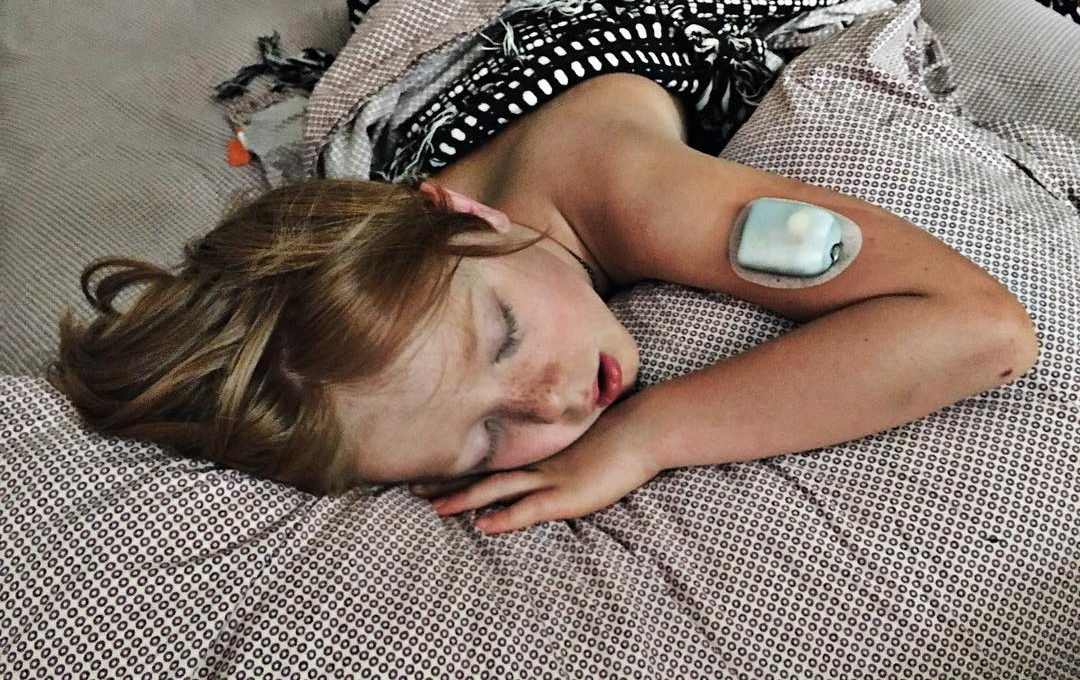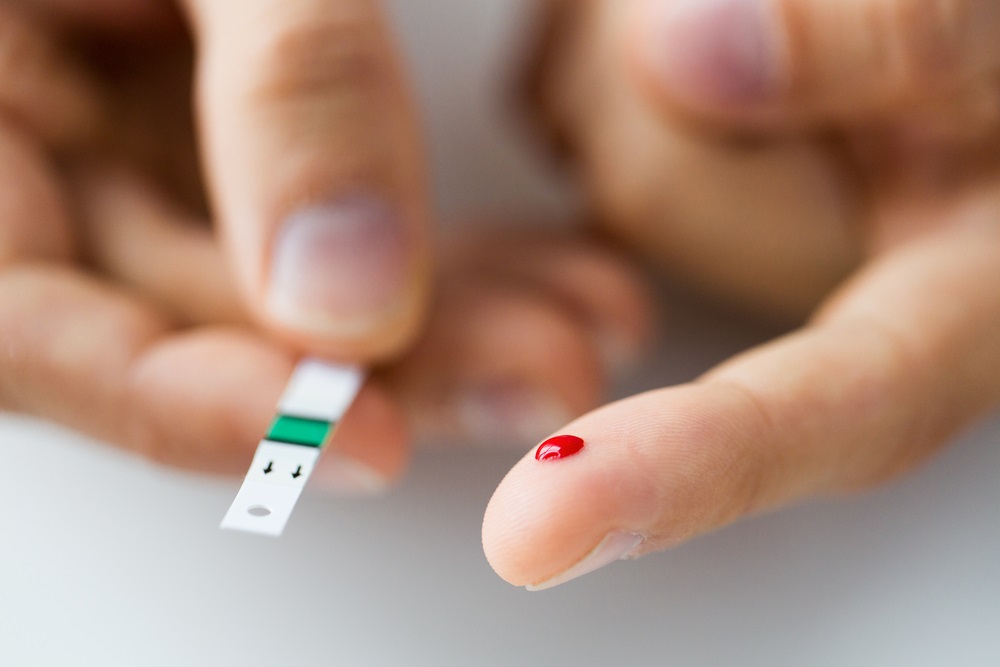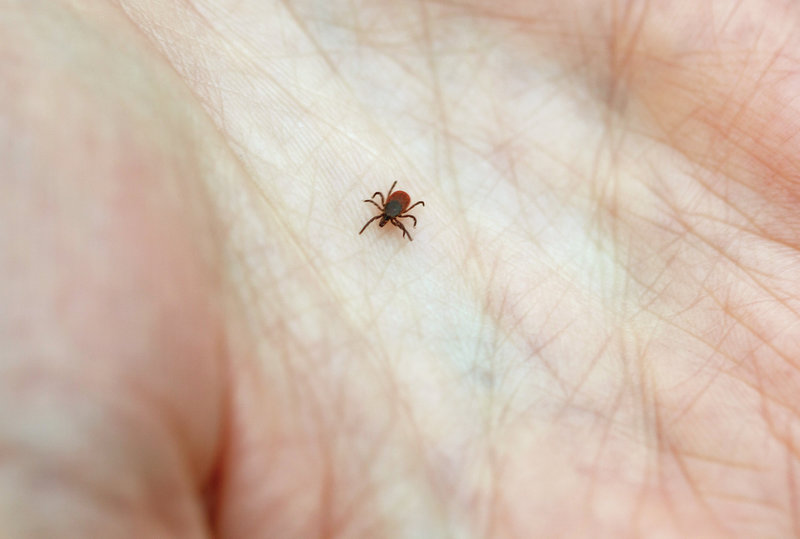The Weight: Caregiver Fatigue And Diabetes
When your kid’s life is on the line, caregiving is a 24 hour job. What do you do when that job wears you down?
It’s 2:14 in the morning and a high-pitched beeping is coming out of an iPhone next to my bed. I groggily stand up, trudge upstairs, and save my son’s life again.
My son Henry has type 1 diabetes. It’s an incurable autoimmune condition that, if managed well, won’t have a significant impact on his quality of life. But managing it well presents its own challenges for my wife and I.

Henry Jensen
The thing with diabetes is that there are two dangers. If his blood sugar goes high, it’s not an immediate threat. Too much of that will cause his eyes to fail and his organs to shut down, but we catch that kind of thing pretty quickly and he’s very responsive to insulin. But if it goes low– and keeps falling–it can result in him falling into a coma and dying. When he goes low, he typically loses 50% of his brain functionality, meaning that he’s not always capable of treating it himself.
It happens all the time. And his sugar can drop really fast. We’ve been out swimming or hiking and he’s plummeted from the mid-80s to the mid-40s in ten minutes. Once he was at school and he dropped so precipitously that he wasn’t coherent enough to take sugar by mouth. The staff had to give him the Glucagon, an injection of sugar that will rapidly spike his blood glucose back up to safe levels. That’s a big needle, a scary needle, and it goes right into the muscle.
So we have a device called a continuous glucose monitor, a little needle implanted in his arm, attached to a Bluetooth transmitter that broadcasts his blood sugar level to his iPhone, and then into the cloud to our iPhones. It’s a wonder of technology, something that would have been unthinkable a generation ago.
Instead of having to take a needle, prick his finger, and siphon blood into a glucose meter every time we need to look inside his body and find out his sugar, we can now see it whenever we want. He’s also wired up with an insulin pump, a small device in his stomach or back that we replace and move every three days, so when we need to bring his sugar down it’s simply a matter of conveniently pressing a few buttons as opposed to prepping a syringe, measuring a pull of insulin, finding a site and giving him an injection.
Things are tremendously better for him than they were for diabetics 20 years ago. But that doesn’t make them necessarily better for me. The downside of having all this information at my fingertips is that I’m constantly on edge, an information junkie for my son’s survival.
Some nights his alarm goes off every two hours, each time asking for more insulin or more glucose to stabilize his sugar one way or another. Some nights his alarm never goes off at all. Even then, I find myself waking up anyways, usually at 2:30 in the morning, and reaching over for his phone in a panic. Did the battery die? Is he OK? He is. He always is. But I still check.
And then there are the nights his alarm goes off, and goes off again, and again, and again. On a particularly bad night I can be up every hour or two to give him a sip from a juice box to raise his sugar, or a unit of insulin to bring it back down. And then I have to get back in bed and try to get back to sleep with the lingering adrenaline from being woken by the alarm still coursing through my system.

It’s exhausting to have Type 1 Diabetes, but it can sometimes be even worse for the parents.
Let’s be clear: it’s not just me doing this. My wife handles an equal share of the responsibilities for his care. Even with two of us, though, it’s a lot. And it’s wearing us down.
Doctors call it “caregiver fatigue.” It’s when you push yourself to the limit every day contending with the needs of your loved one with an illness and it results in problems for your own health.
Common symptoms of caregiver fatigue include irritability, inability to concentrate, appetite issues and vulnerability to sickness. I can only speak for myself, but after a string of rough diabetes days, I can be a miserable person to be around.
For me, the biggest issue is sleep. There’s plenty of science that shows that cognitive abilities start to decline when you get less than 7 hours of uninterrupted sleep a night. I can only think of a handful of nights I’ve done that in the last four years. I am fully aware that I’m not operating at 100% capacity, and it affects every other part of my life, from my relationship with my wife to my exercise and diet. I don’t have energy to play with my kids, and I start feeling resentful of their very existence. It’s no good for anyone.
Caregiving is a 24 hour job. And I already have a job. You can’t take a smoke break or slack off at your desk playing Minesweeper when your kid’s life is on the line.
It all came to a head earlier this summer, when my wife left for a week on a business trip. Everything fell apart – Henry got hand foot & mouth disease at a party (please don’t bring your kids to parties when they’re sick) and it made his blood sugar extra volatile as it covered his extremities with blisters. I should have dropped his carb intake, but I didn’t have the time or energy to cook so we did one pizza night too many. Every night was awful, and every day was full of too many things to do. I took great care of my kids, but at the same time I was stretched to my limit. And then I broke.
I wound up spending a week in a mental hospital, dealing with issues that went beyond caregiver fatigue but my exhaustion definitely exacerbated. I was put on an antidepressant and met with some doctors to learn new coping mechanisms. And most importantly, I was forced to admit that I can’t keep doing this without help.
And then I came back to my family.
The biggest issue with type 1 diabetes – and really most chronic illnesses – is that you can’t control them. You can only manage them, and that takes constant effort. And my only real job on this planet is making sure that my children grow up as happy and healthy as humanly possible.

The Jensen family.
Every day is a new challenge to navigate, to learn how to take care of myself as well as I take care of my children. But it’s the same challenge that every parent out there is dealing with. I just have a few additional layers of stress on top of it.
There’s no magic bullet for caregiver fatigue, no medication that will make you care just enough and no more. Just like my son has to learn to listen to his blood sugar and feel if he’s low or high, I need to listen to my joints ache and my head buzz and know that I need to rest. And just like I help my son, my family can help me. One of the best ways for me to manage that stress is to put my work down and sit and play LEGOs with him, or read comics. To let myself experience his childhood unencumbered with him.
I’m going to be caring for Henry until he’s 18, and probably longer. What makes it worth it is knowing that he’s also caring for me. Thinking of him, and my wife, and my daughter while I was in the hospital made me realize that I need their strength as much as they need mine, and together we can do things for each other – and the world – that we could never do alone.
Source: folks.pillpack.com
“The Weight: Caregiver Fatigue And Diabetes” by:K. Thor Jensen


